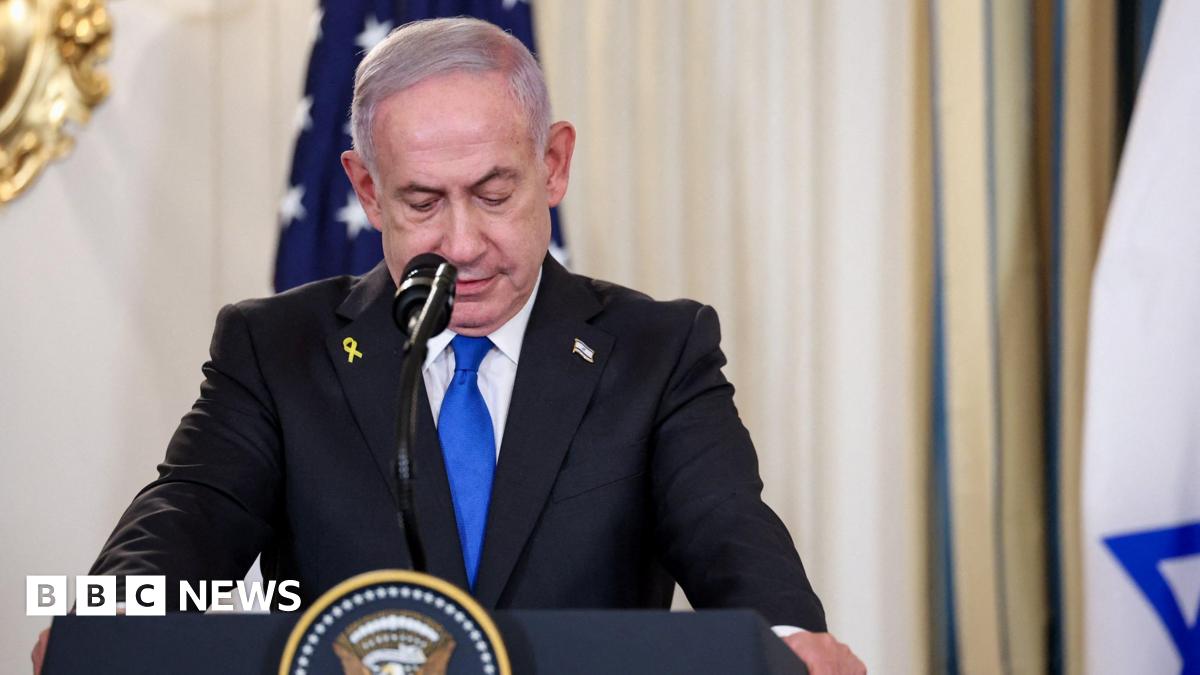There were signs, even before Netanyahu left for Washington, that he knew this choice was coming.
Israel’s president, Isaac Herzog, told an Israeli radio station that he was considering pardoning Netanyahu in the corruption cases he is currently facing in court. These trials are one reason, his critics allege, that he is reluctant to leave office and face the judges without the shield of his national duties, power and profile.
But the political exit being offered to him in this moment – a regional legacy in return for giving up his government, and possibly his political career – does not seem to have entirely won him over.
His first response to his countrymen today has been to publicly emphasise that he did not, in fact, agree to a Palestinian state.
“Absolutely not. It’s not even written in the agreement,” he said in response to a question on camera. “But we did say one thing – that we would forcibly resist a Palestinian state.”
Reports in the Israeli media this morning also suggest that Israel’s cabinet will not get to vote on the full terms of the deal – but only on the exchange of Israeli hostages for Palestinian prisoners.
The question is what these actions signify about his political calculation: whether Netanyahu is trying to hold his government together long enough to work his political magic on the polls, which currently predict he would lose an election, or whether he is banking on Hamas rejecting this deal – or being unable to control its commanders on the ground in Gaza – and that the war will not stop at all.
The potential continuation of the war was something he emphasised in that uncomfortable press conference in Washington, underlining – with Trump’s backing – that Israel would have free reign to “finish the job” if Hamas failed to deliver on its side of the deal. Seen in that light, this uncomfortable moment could be the price of continuing American support for his war.
Netanyahu is known as a master of political manoeuvres, threading a path between political roadblocks to buy time. He has shifted position through previous rounds of negotiations, and has ridden through previous ceasefire deals, only to back out when a permanent end to the war is up for discussion.
Many believe he has never wanted to negotiate an end to this war, but to force Hamas into a surrender on Israel’s terms. But it is hard to maintain that uncompromising image of “total victory” when you have publicly conceded to the very things you have spent a career preventing, and when you are waiting for your enemy’s response.
For the first time since the war began, it seems that the consequences of avoiding this deal were worse than the consequences of agreeing to it. And if Trump really did force him to choose between his ally in Washington and his allies at home, why didn’t Joe Biden do the same when a similar deal was on the table nine months ago – and some 30,000 more Gazans were still alive?
